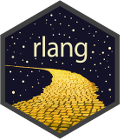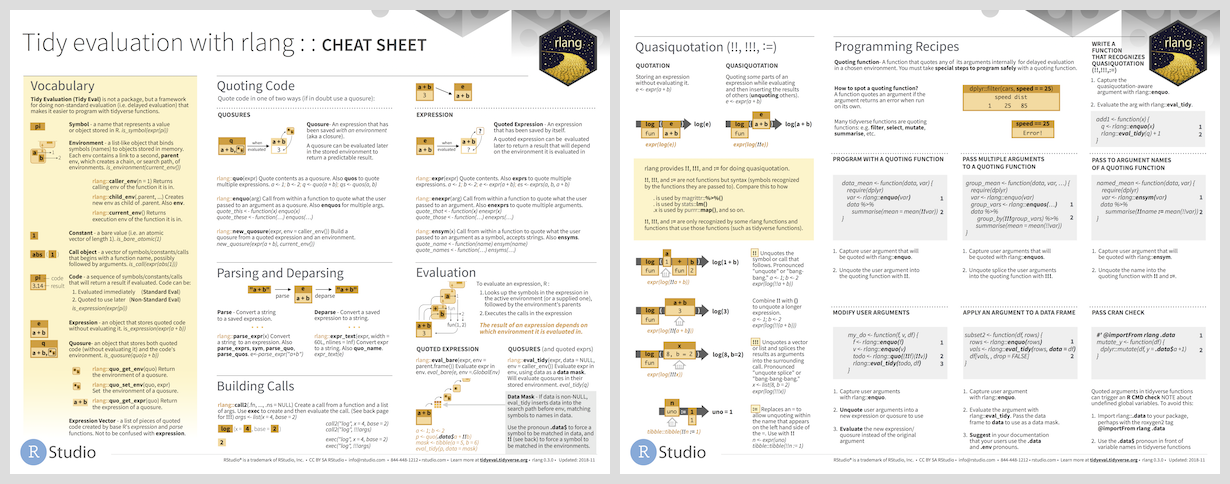rlang 
Important: The rlang API is still maturing. Please see
?rlang::lifecycle for the list of functions that are considered
stable.
Overview
The rlang package provides tools to work with core language features of R and the tidyverse:
-
The tidy eval framework, which is a well-founded system for non-standard evaluation built on quasiquotation (
!!) and quoted arguments (enquo()). See https://tidyeval.tidyverse.org. -
User-friendly error reporting with backtraces and chained errors (
abort(),trace_back(),with_abort()). -
A consistent API for working with base types. Note that overall this is a work in progress that is still in flux:
-
Environments, e.g.
env(),env_has(),env_get(),env_bind(),env_unbind(),env_print(). -
Calls and symbols, e.g.
call2(),is_call(),sym(),syms(). -
Functions, e.g.
new_function(),as_function(). The latter supports the purrr-style formula notation for lambda functions. -
Vectors, including construction (
lgl(),int(), ...) and predicates (is_logical(),is_character()). -
Attributes, e.g.
set_names().
-
Installation
You can install the released version of rlang from CRAN with:
install.packages("rlang")Or install the development version from github with:
# install.packages("remotes")
remotes::install_github("r-lib/rlang")
